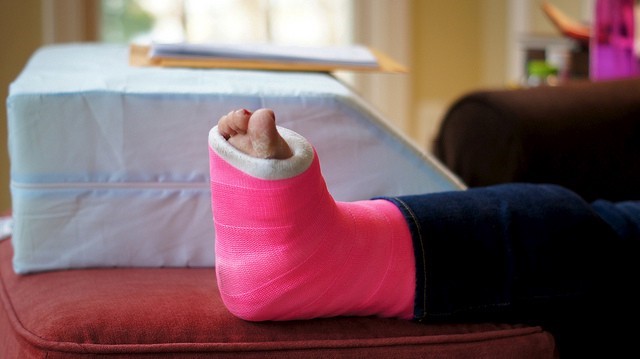We need to start taking mental health injuries more seriously. How trauma is like breaking a leg.

Mental health issues are easily dismissed or over-looked while the impact can be just as immobilizing as breaking your leg.
Some days you’ll feel the pain, and some days it’ll feel so overbearing you can’t walk. Eventually, with the right help, you’ll learn to walk again and the pain will be just a memory.
Seeking therapy for psychological pain should not be considered taboo or as weakness. It takes strength and courage to tackle pain- physical or mental.
The Accident / Trauma

For the intent of getting a clear analogy across, let’s say a trauma is like breaking your leg. If you’re fortunate, you’ll go your whole life without breaking a leg or a bone. However, for some, it will or has happened.
Breaking a leg would obviously require seeking immediate medical attention. The doctor will obviously see the injury, dress the wound, and stitch you up.
However, for mental health injuries, it’s a little more complicated. You may put it off, you may try to just forget about what happened, or you may be weighed down so heavily you don’t have the energy to leave your dark bedroom for days.
You’ll find that putting it off works temporarily, but imagine every thought or feeling you put aside is like throwing dirty clothes in the corner of your room. It’s okay for now, because you’ll get to the laundry later. But if you let the pile grow, you’ll find that one day it becomes an overwhelming and daunting task.
Rest / Denial

After breaking a leg, and casting the leg, the doctor will advise you to rest. This means you’ll need to take care of yourself and your leg, and may need to miss a few days of work.
When you have a mental health trauma, you may notice in order to get through your day, you’ll have to put aside the trauma to focus.
This is a normal, healthy response, if you address the trauma later. This means journaling, sitting with those thoughts, and/or seeking therapy.
But just as if you broke a leg, ignoring the pain does not make it stop… It grows.
But why is it no one would question you for going to the doctor (they’d question you for NOT going) but seeking a therapist seems taboo?
We need to spread awareness that mental health injuries should not go untreated!
Exercising the Part that Hurts / Therapy

After you break your leg, you’ll need to undergo physical therapy. This requires you to stretch the muscles and tendons that hurt, in order to use them again. It can be a slow, painful process, but in the future, you’ll be able to walk on that leg again.
The same goes for mental pain.
In order to be able to process and move past the trauma, therapy can help you work through and stretch the parts of yourself that hurt the most in order to prevent long-term pain.
Learning to Walk Again / Coping Skills

Physical therapists understand that learning to walk again can be a slow and tedious process. They’ll provide you with the right supports, strategies, and at-home exercises.
The same for a mental health therapist.
Some days you’ll feel the pain, and some days it’ll feel so overbearing you can’t walk. Eventually, with the right help, you’ll learn to walk again and the pain will be just a memory.
Everyone’s journey through physical and mental pain is unique. Some people can put pain to the side and get through their lives. Others (most people) can benefit from therapy after pain.
The Take-Away Message
Whatever you decide, know that (just like physical pain) psychological pain is real, can be debilitating, and can be eased with therapy and the proper self-care.



